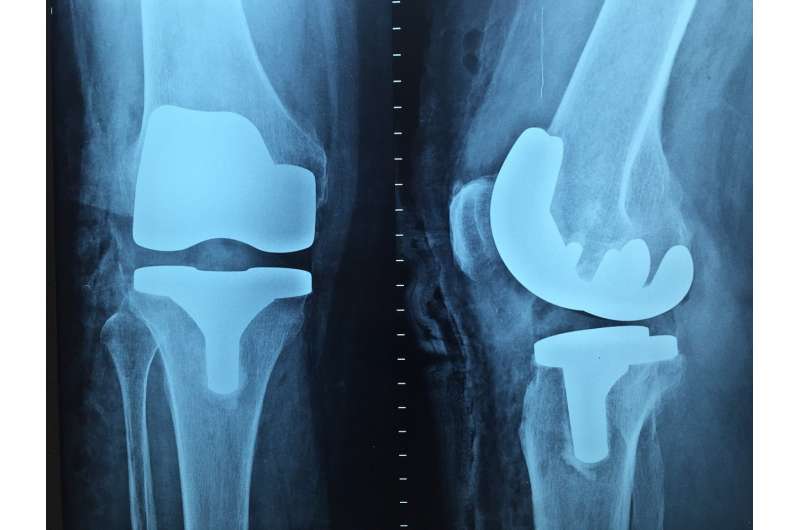Enhanced human body response to implants

UPM researchers have developed a new surface treatment to reduce metallic biomaterial implant rejection. This will extend the prosthesis life and thus increase the quality of life for patients.
In an article published in Scientific Reports, researchers from Centre for Biomedical Technology at Universidad Politécnica de Madrid (CTB-UPM) have developed a new technology to modify the surfaces of metallic biomaterials in order to improve their interaction with the biological medium.
The procedure, called Activated Vapor Silanization (AVS), consists of coating the material surface with a layer of less than one-thousandth of a millimeter and joining molecules that are naturally found in the body. This will reduce implant rejection, and consequently increase the useful life of prostheses.
As a result of evolution, exposure to any substance that is not essential for survival is considered a threat and leads to an aggressive immune response. This mechanism, vital for survival, has become an obstacle to the development of any therapy that involves direct contact of a material with a human organ or tissue. This situation strongly restricts the number of materials available for medical use. There are consequently only three types of metal used for biomedical implants: stainless steel, cobalt-based alloys, and titanium alloys.

Metallic biomaterials are essential in prostheses that are subjected to high stresses, such as hip and knee prostheses. However, even the metals used in medicine provoke an immune reaction. The natural response of the body is to coat these metallic biomaterials with a kind of scar tissue that isolates the material from the surrounding functional tissues. This can facilitate infection in the area of the prosthesis.
A long-term issue is loosening of the implant. A frequent solution to both situations is another surgery. Thus, there is a need for a close and reliable contact between the material and the surrounding functional tissue that would reduce implant rejection and increase its useful life.
The new technique, Activated Vapor Silanization, involves placing a surface coating less than one micron thick to metallic biomaterials, easing the join of molecules naturally found in the body.
The researchers observed that by immobilizing collagen molecules on a surface of titanium alloy, a higher number of cells grew on the material, as well as cells of a larger size.
José Pérez, a researcher involved in this study, says, "the AVS technology is a versatile procedure that can be easily adapted to the procedures currently used to develop metallic biomaterials." Therefore, the use of this technology can significantly improve the quality of life of patients that will require prosthesis in the future.
More information: Parsa Rezvanian et al. Enhanced Biological Response of AVS-Functionalized Ti-6Al-4V Alloy through Covalent Immobilization of Collagen, Scientific Reports (2018). DOI: 10.1038/s41598-018-21685-3
Journal information: Scientific Reports
Provided by Universidad Politécnica de Madrid





















